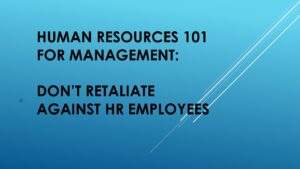 As Texans, we have always prided ourselves as being independent and different from those in the other 49 states. Sometimes, however, being different doesn’t mean you’re better. Take for instance the law that requires employers to carry workers compensation insurance. This insurance provides medical coverage and wage replacement for injured workers. In exchange for having this coverage, employers receive protection against most legal claims stemming from job-related accidents or injuries. These mandatory insurance laws exist in every state except one, Texas. In Texas, employers are not required to have workers comp insurance, and can “opt out” of the state workers comp program. If they do opt out, these “non subscribers” can either implement some type of injury benefit plan that provides benefits similar to workers comp, or they can choose not to provide any injury benefits to their workers.
As Texans, we have always prided ourselves as being independent and different from those in the other 49 states. Sometimes, however, being different doesn’t mean you’re better. Take for instance the law that requires employers to carry workers compensation insurance. This insurance provides medical coverage and wage replacement for injured workers. In exchange for having this coverage, employers receive protection against most legal claims stemming from job-related accidents or injuries. These mandatory insurance laws exist in every state except one, Texas. In Texas, employers are not required to have workers comp insurance, and can “opt out” of the state workers comp program. If they do opt out, these “non subscribers” can either implement some type of injury benefit plan that provides benefits similar to workers comp, or they can choose not to provide any injury benefits to their workers.
Wal Mart recently announced that it was opting out of the workers comp system in Texas, and will utilize its own injury benefit plan. As one of Texas’ largest private employers, this action is sure to resurrect the debate about whether Texas should require all employers to carry workers comp insurance. Ironically, the principal players in this debate do not necessarily include Texas workers, but rather two powerful lobbies – the insurance industry, which would benefit from such a mandatory law, and the business lobby, who opposes it.
According to the Texas Department of Insurance about one-third of private employers in Texas are non-subscribers. This percentage has actually decreased in recent years. Employers opt out of the workers comp system, not because they want to punish their workers, but rather because they want to save money. This is a legitimate and understandable reason, but what repercussions does this have on workers? Under the Texas workers comp system, if a worker is injured, he or she can have medical coverage as long as medically necessary, including lifetime coverage for catastrophic cases. Under a non-subscriber’s injury benefit plan, there is usually a cap or limit on the amount of medical bills an employer is required to pay. This can vary by plan. The New York Times recently reported that Wal Mart’s injury benefit plan caps medical expense payments at $300,000. If anyone has been recently hospitalized or received extensive medical treatment, you know that this $300,000 amount can be depleted quickly. Who then would be required to pick up the rest of the medical bills? Wal Mart has been criticized in the past for not providing health insurance to many of its employees, so does that mean that a seriously injured employee who has exceeded $300,000 in medical bills would be forced to seek treatment at a public hospital? If so, is it fair for taxpayers to pay the medical bills of an injured worker employed by large and profitable corporations?
Another problem exists when employers are permitted to opt out of workers comp coverage. Texas law prohibits an employer from terminating or retaliating against a worker because they have filed a workers comp claim. The public policy behind this law is to encourage workers to report job related accidents, seek necessary medical treatment, and not be subjected to retaliation for doing so. However, this “workers comp retaliation” law does not apply to non-subscribers. That means than an employer that does not carry workers comp insurance can legally terminate a worker for reporting an on-the-job injury.
Only the Texas legislature can address these issues. One possible model used by several states would mandate workers comp insurance, but also allow exemptions for small businesses. This would at least attempt to strike a balance between the financial strain of workers comp on some small companies, while still providing much needed protections for injured workers.
“A government, for protecting business only, is but a carcass, and soon falls by its own corruption and decay.”
– Amos Bronson Alcott





